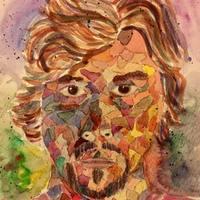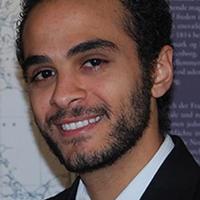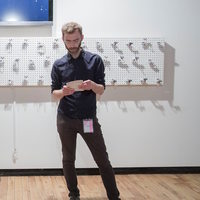Papers by Sascha Pohflepp
On how contemporary art has found its own avantgarde in technology corporations.
Culture in a wider sense is as much part of what makes us human as the homo sapiens’ set of genes... more Culture in a wider sense is as much part of what makes us human as the homo sapiens’ set of genes itself, it is “the ecological niche” proper of humanity. Technology as part of culture is inextricable from this relationship and as the pace of its development is speeding up by all measurements, so do the effects this may have on our species. With transhumanism, a whole field devoted to the study of what comes after us has emerged, yet this text aims to argue that the feedback may be less linear and indeed more complex than the idea of surpassing our own humanity through a literal fusion with with technology as some propose.
Talks by Sascha Pohflepp
Drafts by Sascha Pohflepp
At what point does value emerge in a contemporary economic system? A conventional view would like... more At what point does value emerge in a contemporary economic system? A conventional view would likely posit that a person, natural or unnatural, produces it by utilizing various forms of capital and labour, hoping to generate a profit in the process. An "enormous [amount of] properly human and anti-natural" labor, configured into "an alienated power," 1 as Fredric Jameson points added in his seminal analysis of the postmodern condition in the early 1990s.
This essay traces crossed phenomena that exist within us and attempts to formulate a hypothesis o... more This essay traces crossed phenomena that exist within us and attempts to formulate a hypothesis of what the implications of apophenia could be in regard to its complementary phenomenon: a failure to recognize patterns, in geology as much as in biology. Emergent effects which in many cases give rise to the very artifacts that we may perceive as images, wondering in how much the authorship may lie with the process and not a singular mind, be it human or supernatural. Lastly it extrapolates this scenario in order to wonder whether we may produce patterns which resemble existing things and what bearing this would have on their ontology.
This text follows the notion of 'artifact' through a range of meanings, trying to cast light on m... more This text follows the notion of 'artifact' through a range of meanings, trying to cast light on more specific examples. Considering the use of artifact in regard to objects, looking at its use in archeology and then advance into the fields of art and design. It follows Michael Lynch’s seminal 1985 ethnographic work the use of artifact in laboratory science. Finally, it explores ways in which this binary reading could be expanded; through considering other kinds of 'artifactuality' caused by the emergence of living technologies and synthetic consciousnesses which might come to
constitute a new category that escapes the binary taxonomy of artifact originally encountered.
This text attempts to contextualize the influence of Gottfried Wihelm Leibniz two-fold: In terms ... more This text attempts to contextualize the influence of Gottfried Wihelm Leibniz two-fold: In terms of the seventeenth-century world that was contemporary to him and of the mathematization that took place during the Baroque. It considers the shift from a world that was structured by belief in divinity through indirect proof to a world of contingency that is governed by probability. I argue that it is the same world in which we find ourselves today, marked by traits that Leibniz clearly saw yet could not fully embrace. Lastly, it tries and construct yet another bridge to our contemporary and to the future by hypothesizing how the thinking of Leibniz and its lasting impact could come to extend his system in ways that he himself might have only speculated about.









Uploads
Papers by Sascha Pohflepp
Talks by Sascha Pohflepp
Drafts by Sascha Pohflepp
constitute a new category that escapes the binary taxonomy of artifact originally encountered.
constitute a new category that escapes the binary taxonomy of artifact originally encountered.